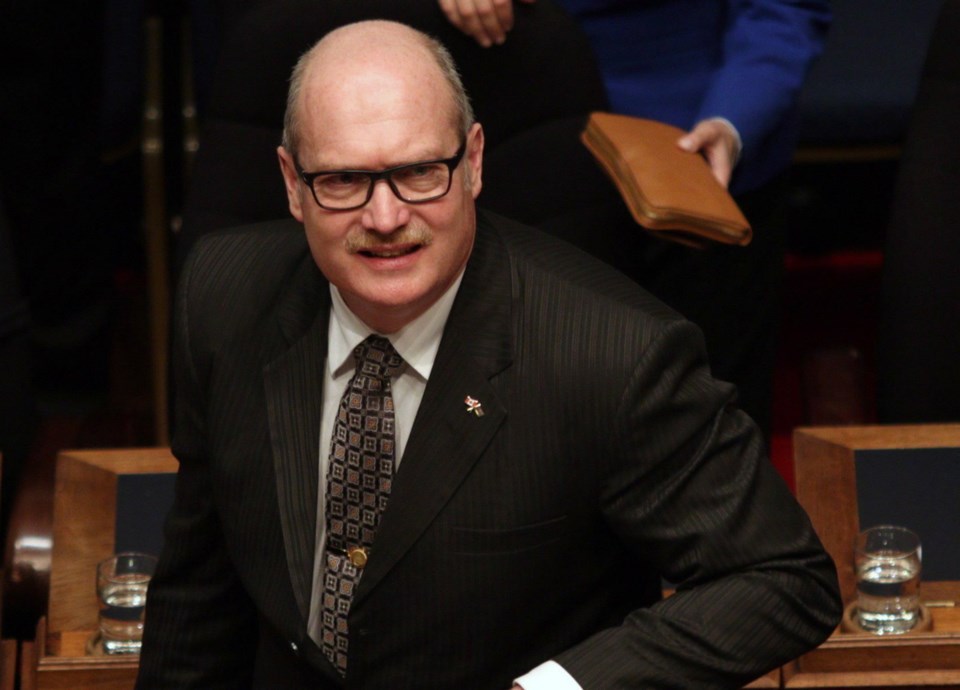 After years spent jacking up B.C.’s unique medical premiums to the point they became a political problem, the B.C. Liberals promised Tuesday to ease off.
After years spent jacking up B.C.’s unique medical premiums to the point they became a political problem, the B.C. Liberals promised Tuesday to ease off.
Facing increasing complaints, the government started relenting last year with various adjustments to the premiums. Tuesday’s budget is the start of a full retreat.
It sets out a plan starting next year to cut premiums in half for most taxpayers, then eventually eliminate them, although they are still listed in the fiscal plan as a revenue source through to 2020.
The promised January 2018 cut would save up to $900 a year for some families and knock the premiums back to the 1993 level. The idea, of course, comes with an asterisk: “Offer subject to government winning re-election May 9.”
Medical Services Plan premium cuts aren’t a dividing point politically. The NDP and the B.C. Green Party both stand for ditching the premiums and replacing the lost revenue (about $2.5 billion a year) from general taxation in some fashion. But the Liberal plan would push past those stances by cutting premiums with no reference to makeup increases elsewhere in the tax regime.
It was only a year ago that Finance Minister Mike de Jong warned in his budget speech: “Burying MSP into instruments of general taxation doesn’t make them go away. It merely hides them and may create for some the illusion that health care is free, which it certainly isn’t.”
On Tuesday, he didn’t bury it in general taxation. He started the job of burying it, period. De Jong said the move was prompted by continual complaints from all quarters about the premiums, charged nowhere else in Canada.
The premium was created in the 1960s ($60 a head per year) and Liberal governments over the past 15 years have relied on regular hikes, to the point where they now reach up to $900 a year for an individual.
Although bureaucratic and administrative loads were also cited as a reason to eliminate them, it’s going to take plenty of both to get rid of them. Taxpayers will have to register for the break, and a process will be set up for companies that pay group plans on employees’ behalf.
The cut was the centrepiece on the buffet table the government set for voters, using money they consider to have overcharged taxpayers. The plan is to use up a considerable part of the expected budget surpluses over the next three years on tax cuts.
The Liberals could have made a bigger splash with other tax cuts. But they picked the MSP cut for maximum impact on middle-class voters, working people with less than $120,000 in annual family income. The government wants to make taxation the ballot question, staking its future on the belief that people prefer tax breaks to programs and services.
They drove the tax-cutting point home elsewhere, as well. The MSP cut amounts to $845 million in forgone revenue next year, paid for out of the surplus. Also announced was elimination of the provincial sales tax on all commercial electricity, worth $82 million, and a drop in the small-business corporate rate, worth $72 million a year.
All told, there is $1.3 billion in tax cuts, which is close to the value of the surplus in the fiscal year closing next month.
And yet, program spending and overall expenditures are still climbing. The latest estimate of the year just closing is a bit of a shocker, since it bucks the trend of ultraconservative estimates that grow steadily richer over the fiscal year. It shows that for all the emphasis on tax-cutting, the Liberals haven’t been shy about spending money.
De Jong issued a quarterly estimate last November that predicted a year-end surplus of more than $2.2 billion. The latest estimate Tuesday, with a month left in the fiscal year, drops that figure to $1.5 billion.
In the space of three months, $784 million went out the door, with housing initiatives the highest-profile new item.
If they’ve framed the issue right, the budget will put the Liberals in a solid position at the outset of the campaign. If they’ve misjudged the mood, if voters want more invested in collective benefits, such as welfare rates, then the political race will be even tighter than it already is.



